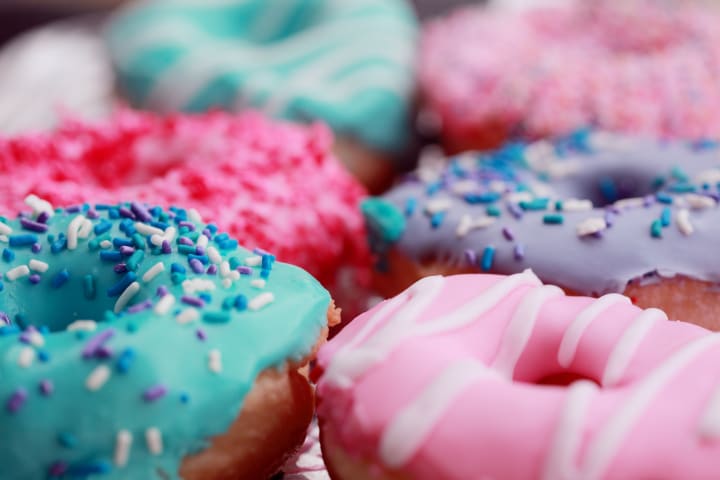Give Up the Guilt
Why We Shouldn't Use the Term "Guilty Pleasure" When Talking About Foods

Eating disorders and disordered eating are widespread problems in our modern-day society. While it can be important to know that what we eat directly affects our bodies, it can also lead to negative thoughts including guilt, and guilt can be one of the most damaging emotions a person can have. We hear about guilt "eating away" at someone, which can be a metaphor, but can also become very literal. As a nutritionist and someone working in the fitness industry, I do my very best to eliminate the negatives around our health and focus on the positive.
"Guilty pleasure" refers something that we enjoy, but that we don't necessarily want to tell people we enjoy—except for the fact that we often do share these likes with others. Guilty pleasures could be movies, books, and even food. It can be a fun game, sharing something that essentially seems so personal, but really has little to no effect on your life. When we talk about our guilty pleasure movies, for example, it is usually shared as fun, bonding activity that ends up have little to no negative impact on your life. But when food is included, it can start to have a very real, and very damaging effect on a person.
Stereotypical diets provide you with a list of foods to avoid, and these are often considered "bad" foods. When we indulge in these "bad" foods we feel guilty and this guilt can cause a wide variety of actions, both conscious and subconscious. While there may be foods out there that I think are not a healthy dietary choice, I avoid using the word "bad" when talking about them for this exact reason. Using terms like "bad food," "junk food," "earn your meal," etc. can make people feel guilty about eating as a whole, especially when they eat those foods. This guilt can weight on someone, bringing them down.

Photo by Sharon McCutcheon on Unsplash
So how do we start to eliminate the guilt around food? First of all, we have to change our thinking about "guilty pleasure" foods, and that change takes time. Since I have studied nutrition for nearly 10 years, I am well aware of when I eat something that doesn't fuel my body in the best way. But just because I have that knowledge doesn't mean I don't sometimes choose to eat that food. Most times I enjoy that food with no major effects, but other times I suffer the consequences (digestion problems, bloating, fatigue, headaches, weight gain etc.). But instead of feeling guilty, it's best to acknowledge the choice made, recognize the physical symptoms and tuck that information away. That way you, or I, can use that information when we are faced with that food or a similar choice later on. The goal is to start making decisions not on guilt, but because you do or do not want to feel a certain way later on. There is a difference between listening to your body and shaming yourself for your choices.
It's also important that if you do make the choice to enjoy certain foods, that you don't focus on having to burn off the calories or make up for any food choices. These thoughts may seem helpful, but they can lead to guilt. Instead, it's important to look at your life as an overall balance. If you are active, workout regularly and generally eat well. One food choice shouldn't make a major change in your body. Instead of hitting the gym on an off day or adding an extra 30 minutes to your cardio, stick with your regular routine. Setting a calorie goal for lunch may be helpful, but if you start panicking and overthinking when you go over by 30 calories, you will fall into the negative thought process again. Looking at the week may be a better option. Did you hit your workout goals that week? Were you active? Did you eat X amount of fruits and Y amount of veggies? The overall balance can help you from getting stuck on the little things and letting them weigh you down.
Finally, we must start to breakdown society's pressure for the perfect body. Food and fitness should be about how you feel, not how it makes you look. This is why I like to talk about food fueling us, because after all, that is its main purpose: To provide us fuel to live our lives. When we turn the idea on its head like that we can stop focusing on how certain foods make our body look and instead focus on how they make us feel. In recent years, the body positivity movement has taken off, which may make it seem like we are less focused on people's bodies, but unfortunately, we still have much more work to do.
The most important thing is to focus on your health and wellness, both physical and mental. Many people have spent too much time focusing on just their physical health without realizing how they are damaging their mental health. In the end, if you love your body, you'll take care of it, which will make you healthier and make you love your body even more. It's the kind of cycle we should all strive to fall into.






Comments
There are no comments for this story
Be the first to respond and start the conversation.